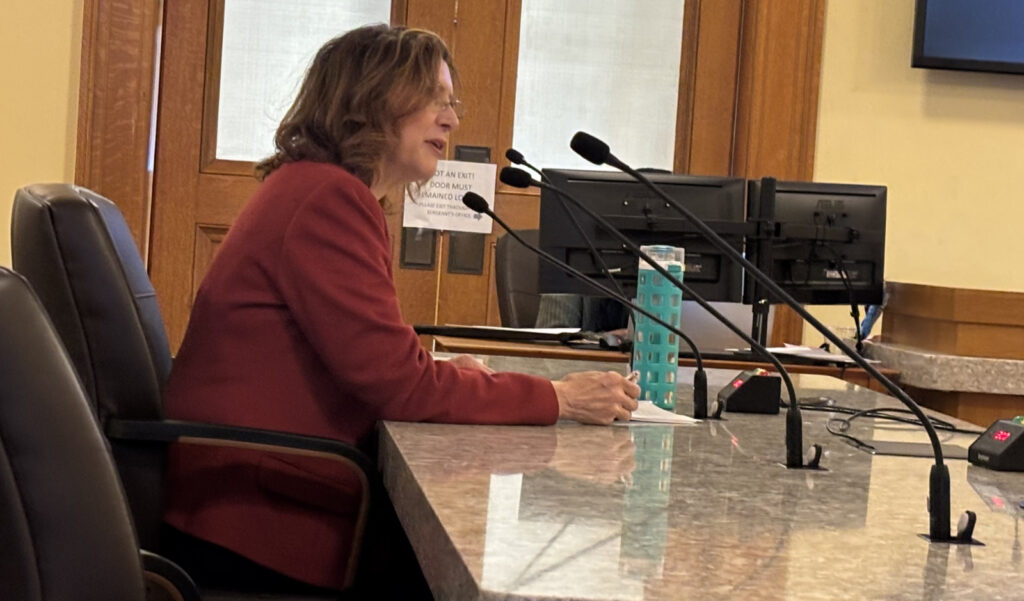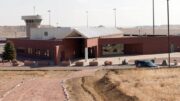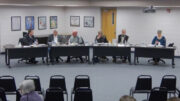By Jeffrey A. Roberts
CFOIC Executive Director
A bill that extends CORA response deadlines cleared another legislative hurdle Monday while a wide-ranging Republican-sponsored government transparency measure died on a party-line vote in a House committee.
Senate Bill 25-077, which passed the Senate in late February, gives records custodians five working days, rather than three, to fulfill Colorado Open Records Act requests made by the public and an additional 10 working days, rather than seven, if “extenuating circumstances” exist. Journalists are exempt from the lengthened timelines, but governments can take up to 30 working days to fulfill requests made “for the direct solicitation of business for pecuniary gain” and charge a “reasonable cost” — rather than the maximum hourly rate in CORA — to do so.

House Bill 25-1242, voted down 8-3 in the House State, Civic, Military & Veterans Affairs Committee, also would have impacted CORA requesters by significantly lowering the cost of obtaining records and clarifying that the statute’s personnel files exemption does not apply to records about “the exercise of official government functions by any public employee.”
But most of the committee discussion and testimony about HB 25-1242 focused on its repeal of Colorado Open Meetings Law exemptions enacted a year ago.
Senate Bill 24-157 narrowed the definition of “public business” as it applies to the legislature and let state lawmakers communicate by email and text message without having to worry about violating the open meetings law. Majority Democrats in both chambers used the new definition of public business to exclude reporters from caucus meetings before a special session on property taxes last August.
Defending the changes, Rep. Chad Clifford said “we are in a massively open process here. You can watch me eat three meals a day in this building. You can follow me on every vote. You can listen to me speak at the dais. And anybody who thinks that we don’t debate bills in this building has not spent very much time here. That’s what we do,” the Centennial Democrat added.
Rep. Jenny Willford, D-Northglenn, said she voted for the open meetings law exemptions because “the ability of members to work together and have tough conversations is a key part of the legislative process, and that is often done through one-on-one conversations that allow members to develop relationships, to ask questions, to change their minds and their opinion about a particular policy.”
But Jon Caldara, head of the Independence Institute libertarian think tank, criticized the 2024 bill’s “overreach” and notified committee members that a politically diverse coalition of groups (including the Colorado Freedom of Information Coalition) is working on a state constitutional “right to know” ballot initiative for 2026.
“The bill that you will likely vote down today is a backbone of what that is,” he said, referring to HB 25-1242.
“Transparency is not a privilege, it is a right,” said the sponsor, Rep. Lori Garcia Sander, R-Eaton. “Government should not be difficult to access. Public records should not come with a price tag. Meetings that shape laws and policies should not happen behind closed doors. These are basic principles, yet we seem to have had them eroded over time by loopholes, excessive fees and unnecessary delays.”
Much of the committee’s CORA bill discussion centered on its exemption for members of the news media as defined by Colorado’s reporter’s shield law.
“Bills like this make citizens second class to the media and I question the fairness of that,” testified Cory Gaines, a Northeastern Junior College physics instructor who frequently writes about government accountability issues. “I don’t think it’s right. I don’t think it’s what the government ought to be doing.”
SB 25-077, which passed 8-3, is headed to the House floor. The committee tacked on an amendment that explicitly allows county coroners to provide investigative files underlying an autopsy report to a decedent’s next of kin.
Also on Monday, the Senate Education Committee voted 6-1 for House Bill 25-1041, which would make university “name, image and likeness” payments to student athletes confidential.
Bill sponsor Sen. Judy Amabile, D-Boulder, said keeping the names confidential “provides essential protection for their mental, financial well being and their safety.”
“If a student athlete’s NIL compensation is public, it makes them immediately subject to bad actors who would seek to prey upon them,” she said.
Follow the Colorado Freedom of Information Coalition on X or BlueSky. Like CFOIC’s Facebook page. Do you appreciate the information and resources provided by CFOIC? Please consider making a tax-deductible donation.




